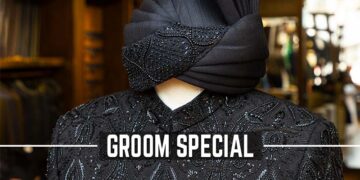 LONDON: Britain’s advertising standards council banned two makeup advertisements featuring actress Julia Roberts and model Christy Turlington on Wednesday, ruling the ads — which used digitally altered photographs — were misleading.The Advertising Standards Authority found that the airbrushed images used by L’Oreal in magazine ad campaigns exaggerated the results women could expect from using the beauty products.The watchdog said the ads could no longer be used.The decision was seen as a step forward in an ongoing campaign to limit the retouching of photos in beauty-related ads in Britain.
LONDON: Britain’s advertising standards council banned two makeup advertisements featuring actress Julia Roberts and model Christy Turlington on Wednesday, ruling the ads — which used digitally altered photographs — were misleading.The Advertising Standards Authority found that the airbrushed images used by L’Oreal in magazine ad campaigns exaggerated the results women could expect from using the beauty products.The watchdog said the ads could no longer be used.The decision was seen as a step forward in an ongoing campaign to limit the retouching of photos in beauty-related ads in Britain.
“We really welcome this,” said Susan Ringwood, chief executive of Beat, which campaigns to combat eating disorders. “It highlights one of the main issues, that these hyper-perfect versions of beauty are undermining people’s confidence because they are beyond what’s achievable. It’s unrealistic in a way that’s really damaging to vulnerable young people and effects all of us.
“The advertising standards council, which is now allowed to consider the social impact of the ads as a criteria on whether they are acceptable, acted after a complaint from a lawmaker, Jo Swinson, who praised the decision to ban the images.”This ruling demonstrates that the advertising regulator is acknowledging the dishonest and misleading nature of excessive retouching,” Swinson said in a statement released by her office.
“Pictures of flawless skin and super-slim bodies are all around, but they don’t reflect reality. With one in four people feeling depressed about their body, it’s time to consider how these idealized images are distorting our idea of beauty.”Swinson — the co-founder of the Campaign for Body Confidence — said Roberts and Turlington are naturally beautiful women who do not need to have their images retouched.
She had earlier challenged a makeup ad campaign featuring 1960s model Twiggy.The digitally altered photographs show Roberts and Turlington promoting foundation sold by Lancome and Maybelline, two L’Oreal brands.Roberts was promoting a product called Teint Miracle and Turlington was touting an anti-ageing product called The Eraser.
In separate rulings, the advertising council said the company went too far in its claims for each product.The company had defended both advertisements as accurate despite the retouching.In a statement released by its New York press office, Maybelline officials said they were “disappointed” by the adverse ruling. It said the ad for The Eraser was accurate.”Even though the ad features an obviously illustrated effect, some lines are still clearly visible beneath the illustration and we do not believe that the ad exaggerates the effect that can be achieved using this product,” the company statement said. – Yahoonews












